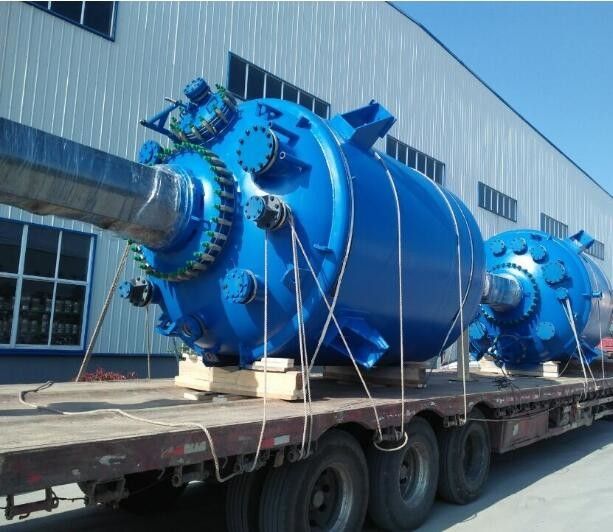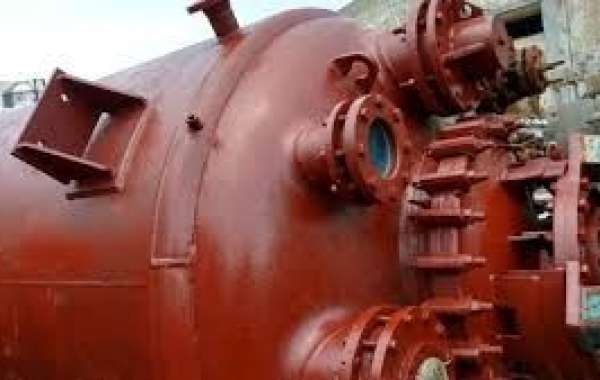
A chemical reactor is a device that is used to control a chemical reaction takes place. The equipment allows scientists to manage and monitor a chemical reaction to ensure more exact reactions, which produce higher high-quality results.
Reactors are offered in a number of sizes and configurations. They can be utilized for ongoing or continuous operations, along with the products and reagents are usually fluids (liquids or gas).
Industrial Reactors Conversion
Reactors can be described as one of the key components of every chemical process. They play a major role in the majority of the steps in the process of conversion an reaction, and also determine what speed or slowness a chemical process is. For that reason, improving an existing reactor's design can bring significant savings and increase revenue potential for the entire facility.
Systems of reaction that are distinguished by heterogeneous reaction, in where two or more phases are present, are often utilized as chemical reactors. Most commonly, they are gas-liquid, liquid-liquid and solid-liquid systems.
These types of industrial reactors can be categorized as batch or continuous. The continuous reactors are able be operated continuously, and not having to be shut down for prolonged intervals of time. They are also able to have high production rates compared to those batch reactors.
A batch reactor can be described as a form of chemical reactor which operates in a manner that charges the reactants eventually discharging their converted products. The advantages of this type of reactor is that it could be used to react chemically with many different substances.
A tube-based chemical reactor functions similar to the traditional reactor but instead of allowing reactants to spread out and back, it permits them to flow through the tube at extremely large speeds. This results in a phenomenon known as plug flow. It greatly decreases the risk of reaction side effects. This type of chemical process is commonly used in Nitration and polymerization.
Reactors for Sale Build Laboratory
A chemical reactor is a vessel which uses energy in order to complete a certain chemical process. The vessels used for this purpose are designed to manage and monitor chemical processes on a lab scale which they are able to be used on a larger scale. It is crucial because the chemical reaction process can be dangerous if it isn't controlled properly.
The cost of a glass-based reactor could differ greatly based on a variety of factors. The size of the glass vessel will affect the price similar to the shape and the components used in manufacturing for the reactor. For instance, a unit that is made from stainless steel frequently more costly than one constructed of plastic.
Another element that impacts the cost of a chemical reaction is the capacity. The reactor's capacity will determine how much of the chemical it is able to process at one time, and how fast it will react to various chemicals. Generally, smaller chemical glass reactors are much less costly than bigger ones since they consume lesser energy for their operation. Get to know about this uesd reactors in the link .
Reactors offered for sale could also be classified into jacketed and non-jacketed versions. Jacketed reactors are great for applications where temperature control is necessary. They are constructed with a layer of insulation that conducts warmth from the outside into the reaction, while liquids and gasses are discharged via the connections at the bottom. The model that is not jacketed is less cost and better suited in environments that do not require temperature control.
Buy Reactors Used Production
Reactors are commonly used in chemical processing plants as well as laboratories. They are used to regulate temperatures and pressure. They are able to produce optimal results throughout the chemical reaction process. They can also be useful in distillation processes and sample cleaning. These reactors are available in different sizes and material. The glass chemical reactors are mainly applied in laboratory settings, while plastic ones can be used at plant locations. These are also immune to chemicals and withstand extreme temperatures. These are durable and can last for several years prior to they get worn-out, unlike the metal that begins to corrode in the course of repeated use.
In the event that you buy reactors, you must think about the kind of agitation required as well as its size. This will influence the size and price of the vessel. An agitation method that is commonly used involves continuous stirring. This is accomplished by employing a continuous stirred tank reactor (CSTR).
There are also batch reactors which permit the substance to rest before it reacts. These kinds of reactors are much less costly and are used to determine the quality of a product. These types of reactors aren't suitable for the use of biological material in reactions.
A used reactors can save you some money costs of purchasing. One can be found through a company that is downsizing and closing operations, or you might have an excess vessel that's been lying on the ground for a while. Many companies offer a buyback plan, which can help you receive a fair price on the equipment.
Reactor Accessories
There are many options for accessories in reactors that increase efficiency and speed up time. These include water-tight pH probe holders which allow you to keep track of and regulate the level of pH in your reactor. This is important because most media can melt if the pH falls too low. A controller will help prevent it from happening by observing the pH and turning off CO2 when pH dips.
Other useful reactor accessories are the recirculating pumps, as well as a drain manifold kit which can quickly and efficiently drain your recirculating thermal fluid with no risk of the vessel being contaminated during swapping. This prevents loss of valuable product and also reduces interruptions.
DDPS also offers other accessories that can be used in glass-lined reactors. This includes security clamps that have an easy release function that does not break in the middle of the process. The safety clamp has a unique design that eliminates the chance of the threads separating. The clamp is suitable for vessels that have uneven or tight edges.
Other reactor accessories that can be helpful to have include a transparent plastic lid and a low profile hang-on bracket to set the reactor up on the outside of your sump or in your display tank. The deluxe model also has the option of drilling a single hole into the front of the device to take a PTFE thermocouple for easy monitoring as well as a ball valve to allow adjustable flow.




